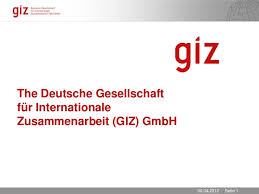The Nigerian Customs Service (NCS) has engaged the service of a German development firm, Gesellschaft für Internationale Zusammenarbeit GmbH (GIZ) to assist it in implementing the Common External Tariff (CET) of the Economic Community of West Africa States (ECOWAS).
The name of the company translates to “German Corporation for International Cooperation” in English. However the German title of the organization has no official translation in the company’s publications.
GIZ is owned by the German Federal Government and operates in more than 130 countries. Its headquarters are located in Bonn and Eschborn Germany.
Recall that President Goodluck Jonathan last month approved the implementation of the CET in Nigeria 2015-2019 and 2015 Fiscal Policy Measures.
The implementation of the ECOWAS CET (2015-2019) together with its Supplementary Protection Measures (SPM) and 2015 Fiscal Policy Measures concurrently took effect from 11th April 2015 after the expiration of the 30 days notice required under the provisions of the ECOWAS CET.
Speaking yesterday at the beginning of a two-day seminar tagged ‘Common External Tariff: Implementation, Challenges and Prospect’ organised by NCS for journalists in Abuja, GIZ’s Advisor on Trade Facilitation and Private Sector Development, Frieder Mecklenburg said his firm is in Nigeria to train officers and men of the NCS the CET implementation.
According to him, “On behalf of the German Development Agency, we are here to support and train officers of the NCS so that they can make effective use of the Economic Community of West African States (ECOWAS) CET trade tariff.
“Germany as a country is benefiting largely from overseas trade, import and export. Nigeria on the other hand is the most powerful market in the West African sub-region. Just as Germany has done in the European Union, we are here to help Nigeria implement the CET in the West African sub-region.
“This tariff implementation will enhance effective management of imports and exports, especially the CET. The CET will not only help the consumer to access cheaper goods from the ports but it will also assist the local manufacturing industries who will have an efficient and cheap economic imports of raw materials for their local production.
“This is why the implementation of the CET is very important for the Nigerian economy. We are here to assist especially the Nigerian Customs in the area of training. The training is being done in two ways; firstly we are running trainings on Customs officers, in fact that is currently ongoing.
“After they have been trained, they in turn re-train their colleagues and disseminate the information they have learned to their colleagues. This will help at the border points for effective CET implementation.
“On the other hand, we discussed and sensitize on new requirements and new procedures involved in the CET tariff implementation. We do run trainings in Nigeria and train officers of the NCS on CET implementation.
“On the other hand, we also intend to support Nigeria on the sensitization of Nigerians on the CET implementation. We have events lined up for that.
“The sensitization programmes will hold in Lagos, Port Harcourt and Kano, although the dates are yet to be fixed.”
Speaking earlier, the Deputy Public Relations Officer of the Nigeria Customs Service, Joseph Attah said the Service could only get its revenue collection drive right if its stakeholders are enlightened.
“Our core duty is revenue generation and how we get that done is through tariff. We cannot achieve this aim if our stakeholders are not on the same page with us hence there is need to train the press,” Attah said.
Meanwhile the Nigeria Customs Service (NCS) is to establish a Customs-Traders-Manufacturers Consultative Forum as part of efforts to ensure a good working relationship between the three parties.
Comptroller-General of Customs, Dikko Abdullahi said this while briefing newsmen in Kano yesterday.
Dikko was in Kano to inspect the textile materials that were illegally imported into the country recently by some Chinese nationals.
He said the forum, when established, would serve as a platform where the customs could explain the Federal Government ‘s policies to traders and manufacturers.
He said, ”This forum will also enable the customs and the other parties to understand one another, with a view to fostering understanding and a harmonious working relationship.
“Moreso, if traders or manufacturers have complaints, they can raise it so that the problem can be resolved once and for all.”
On the seized textile materials, Dikko said those that were allowed to come into the country would be released to the owners to pay the customs duty, while those banned stand to be seized.
“I will write and inform the Federal Government on the contraband so that if it decides to ban them, it can do so,” he said.
He assured that the NCS would continue to do its best to ensure that smuggling of contraband into the country was checked.
Dikko, however, called on Nigerians to assist the customs with useful information, to enable it discharge its duties effectively.
“We always work on information given to us because 98 per cent of crimes detected is based on information received,” he added.
Dikko visited Adhama Textile industry at Bompai area where he addressed some traders on the effort being made by the customs to address smuggling in the country.
The visit was in company of the Comptroller-General of the Nigeria Immigration Service, David Parradang.
Copyright Ships & Ports Ltd. Permission to use quotations from this article is granted subject to appropriate credit given to www.shipsandports.com.ng as the source.

